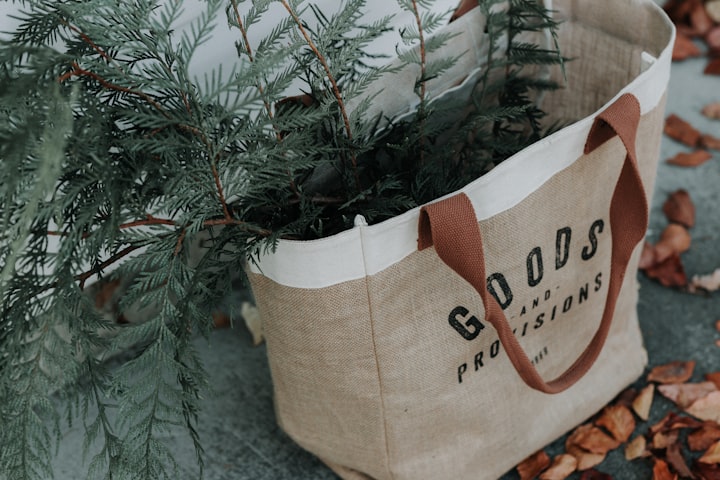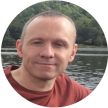17 Easy Steps to Sustainable Living
You Can Make These Changes Today

There’s a high chance you’re here because you want to play your part in saving the planet and protecting our environment, and you’re wondering, how can I live an eco-friendly life?
Welcome to the crowd. Small individual actions, repeated across the world, can make a big difference.
For example, the more people demand their energy supplier to use renewable power sources, the more choice will be provided. That has already happened. The move away from fossil fuels is accelerating across the world.
The more people who switch to a vegan diet, the more stores will meet the demand and support a growing lifestyle that brings huge environmental and health benefits.
Making the choice to lead a more eco-friendly lifestyle can appear a big step to take, however, so here is a list of simple but meaningful changes you can make to your daily routine.
1. Switch your energy supplier
Everyone should regularly look for a better deal on their gas and electricity supplies. When you do so, choose a supplier that produces their fuel from renewable sources, such as wind and solar.
It’s not going to affect the reliability of your home or business supply, and chances are it’s not going to cost you extra either.
2. Go paperless
It’s not just energy companies that offer account management online, your bank will do this as well.
Look out for all options to stop delivery of letters to your home — even as the world starts moving again and we all start buying concert tickets. E-tickets have been a handy way to get into the gig for a while now, just show your phone and get scanned in.

3. Recycle as much as you can
Where you live will determine how many household products you can recycle. Many places have household collections or nearby waste facilities for paper, plastics, glass and cans.
Search your area for even more opportunities — there are many facilities out there collecting clothes, batteries, mobile phones, oil, tyres and more.
4. Avoid all single-use disposable plastic items
It’s good to recycle plastic, but the rates across the world are still far lower than they need to be.
Better still, stop buying plastic in the first place.
Read this article about the first steps in banning plastic gifts from the front of children’s magazines.
Try moving towards living a zero-waste lifestyle.
Wherever there is an option not to buy plastic, take it. You’ll see some examples in this list, such as grocery bags and drinks bottles….

5. Switch to a reusable water bottle
It’s time to make the move. You’ve seen so many of them on the market, in all kinds of wonderful designs. Go for it.
You might already be using a reusable water bottle at work, at the gym, even around the house. Well done if you are — now buy them as presents for your friends and family!
Did you know that Americans alone buy enough plastic water bottles each week to circle the earth FIVE TIMES? Those that go to landfill will take 450 YEARS to break down. So imagine the long-lasting harm they’ll do if they get into our rivers and oceans.
6. Buy less stuff
Sounds simple, and it has been for many people during the pandemic, as there hasn’t been as much disposable income to buy things you really didn’t need.
Ask yourself, are your clothes and shoes really worn out? Do you need to buy flowers that have been imported from across the world?
We all need to reduce our carbon footprints, and if we are buying things which have taken raw materials from the earth, and tons of energy to make them, before being shipped for miles to our door or local store, we need to think about making better choices.

7. Save energy at home
This is one of the simplest, most effective actions you can take — and as well as helping the environment, you’ll be saving yourself money.
So, lower your home thermostat, fix leaks in the heating system, use the eco settings on electrical appliances, switch light bulbs to LED ones, and turn off lights and electronic devices when you’re not using them.
We can all do these things, right?
8. Save water at home, too
A shower uses less water than a bath, but you can go even further — take a shorter shower or have an eco-friendly shower head fitted.
Also, don’t keep the water running while you are brushing your teeth!

9. Create a greener, wilder garden
If you’ve got a garden, you can make a big difference when it comes to helping nature thrive.
Plant a tree or more if you have the room — trees trap harmful carbon dioxide emissions, and so reduce the effects of global warming. They can also cool your home, reduce noise pollution, support wildlife and are just good for your mental health. Who doesn’t love a tree?!
Start your own compost pile, too. Much of the food scraps you normally throw in the trash could and should be composted instead.
You can compost all sorts of things — tea bags, grass cuttings, fruits, vegetables, leaves — even hair!
Compost is good for your plants, so you won’t have to use fertilisers. If you ever do need to resort to garden sprays of any kind, try to buy an eco-friendly version that won’t kill small creatures, or their predators.
You could also leave a section of your garden wild, to attract butterflies, bees and other species that have lost territories over the years.

10. Plant more trees without leaving your comfy chair
There’s a whole article on this here. From using Ecosia as your search engine to buying products from companies that plant trees in return for your custom, you could do the world a favour with minimal effort expended.
11. Support businesses which put the environment first
I like people to see everything through a green filter, asking ourselves at every turn how we can help the environment.
There are thankfully more and more businesses each week committing to help combat climate change or protect nature — so reward them with your custom!
When you’re searching for a service (using Ecosia of course), find out which ones have eco-friendly policies and let them know that’s why you are supporting them.
12. Make your own business eco-friendly
If you run a business, there is so much you can do to make a difference, from using recycled paper (or going paperless), to changing your fleet of vehicles to electric ones.
As mentioned already, you could sign up to a greener energy supplier and you could even host your website with another eco-friendly company.
If you work for an employer, put the pressure on them instead!

13. Go green when getting around
If you can, ditch the car. If you have to use a car, look for schemes to make buying an electric car more affordable, if they are out of your price range.
Use public transport to help keep the amount of polluting traffic to a minimum. Clearly this will be easier in post-pandemic times.
Can you use a cycle to get to work? It’s certainly worth investing in one if you can, even if you’re just going to use it for leisure use.
I can’t get enough of my hybrid bike, it keeps me fit, energised, in the fresh air and I know I’m doing my bit to keep traffic off the roads.
Could you walk to take the kids to school, or to pick up basics from the corner store? If you can, this again has the twin benefit of helping the environment while bringing you enormous health and fitness benefits.
Research has shown that half of all car trips are less than three miles, so there’s no excuse not to choose walking, cycling, bus, tram or train instead, to cut down on carbon emissions.

14. Take your own bags when shopping
You know by now that you shouldn’t be buying plastic bags to carry your shopping. More and more stores are making it difficult for you to do so, banning them or charging for them, but still far too many single use plastic bags are in circulation.
Buy a reusable bag — most stores sell their own, and they aren’t expensive. They are often pretty cool in terms of design, so macho men, don’t worry, you don’t have to carry flowery sacks of shopping!
If you have your groceries delivered, you can often ask for them to be brought to your doorstep without bags.
When it comes to the smaller bags, as well as plastic wrapping, often used for individual fruits and vegetables, this is harmful stuff, often getting into our waterways and taking up to 1,000 years to break down.
Try to buy foods with minimal packaging, and look our for reusable fruit and veg bags, which are becoming more commonplace now.
15. Think eco when buying your necessities
Always look for an environmentally-friendly version of whatever it is you absolutely need to buy.
Buy rechargeable batteries, don’t buy traditional gift wrap (very often laminated and difficult to recycle), consider using cloth nappies / diapers instead of disposable ones, buy green cleaning products, recycled toilet paper… the list goes on and on.
Also buy Fairtrade products — they help some of the poorest economies in the world, and abide by strict environmental standards.
16. Use eco-friendly beauty products
Green beauty products do not compromise on quality. Some big names, such as Rihanna’s Fenty range, have joined the eco-friendly offerings.
Make sure that nothing you buy is tested on animals.

17. Don’t eat meat!
You didn’t really think we’d get through this without mentioning the obvious one, did you?
If you’re considering moving to a plant-based diet, you’re doing the right thing for both the environment and your health, but it can be difficult and overwhelming.
The best thing to do is take it one step at a time, swap different things every week or every month, perhaps, gradually making the transition.
So soya milk or oat milk instead of cow’s milk, hummus instead of butter, a shampoo bar instead of a shampoo bottle, that sort of thing.
About a quarter of greenhouse gas emissions across the world are from agriculture.
The biggest issue is with emissions from beef cattle, which are often raised on deforested land.
It’s not all plain sailing with a vegan diet, however. You might develop a taste for avocados without taking into account the massive air miles racked up in getting that product to your local store. It’s always best for the environment to buy local produce whenever you can.
Conclusion
Thank you for choosing an eco-friendly lifestyle. Your actions CAN and WILL make a difference.
But don’t beat yourself up too much about the speed of your transition. It’s easier, and more likely to last forever, if you take the journey in small, manageable steps.
There is far more that you can do than is listed above, of course, but this represents a good start.
Enjoy the ride and pass on the word to others!
About the Creator
Mark Campbell
Journalist and blogger, editor of greengreengreen.org, on a mission to inform, educate and entertain






Comments
There are no comments for this story
Be the first to respond and start the conversation.